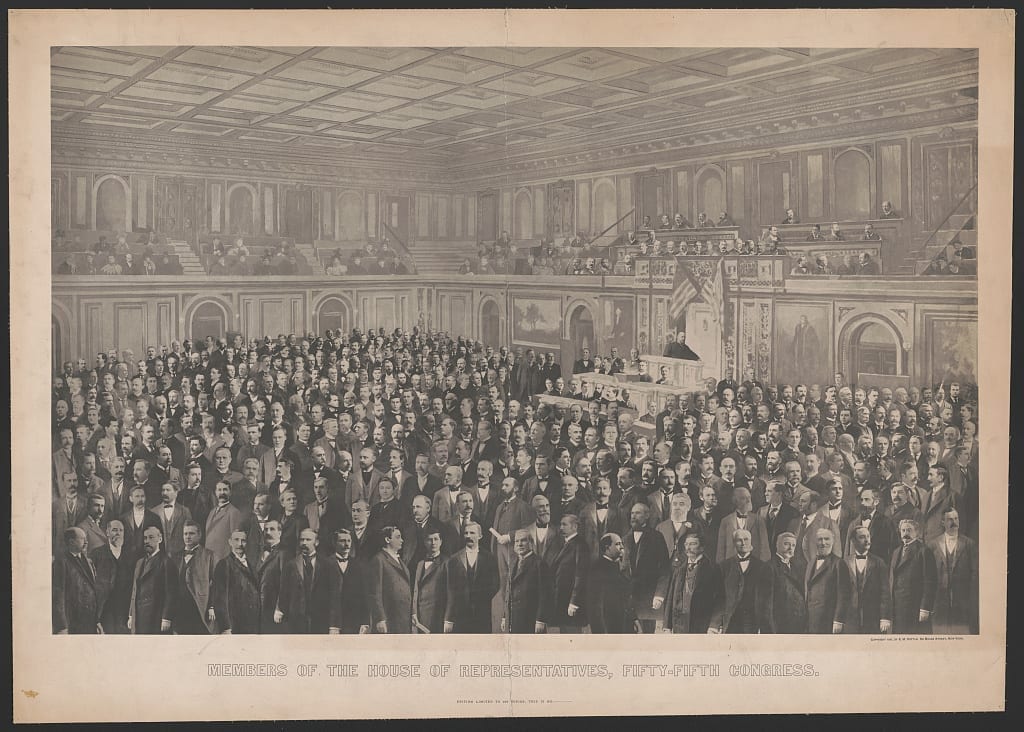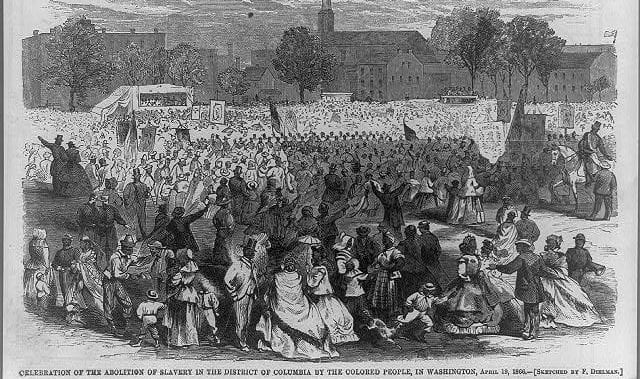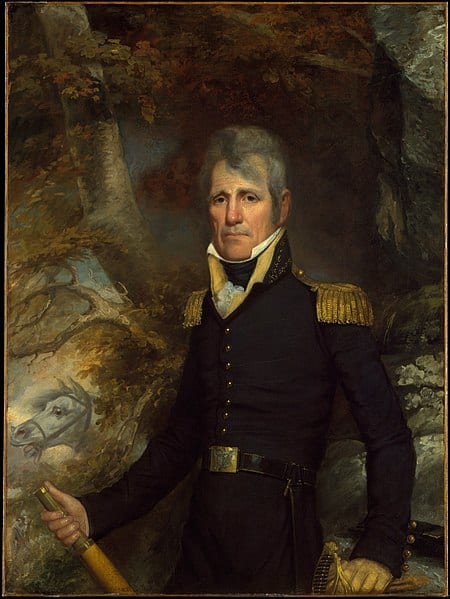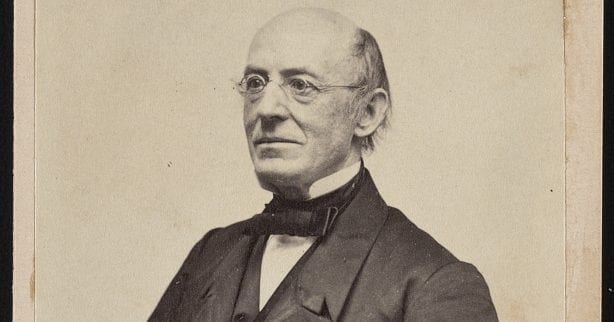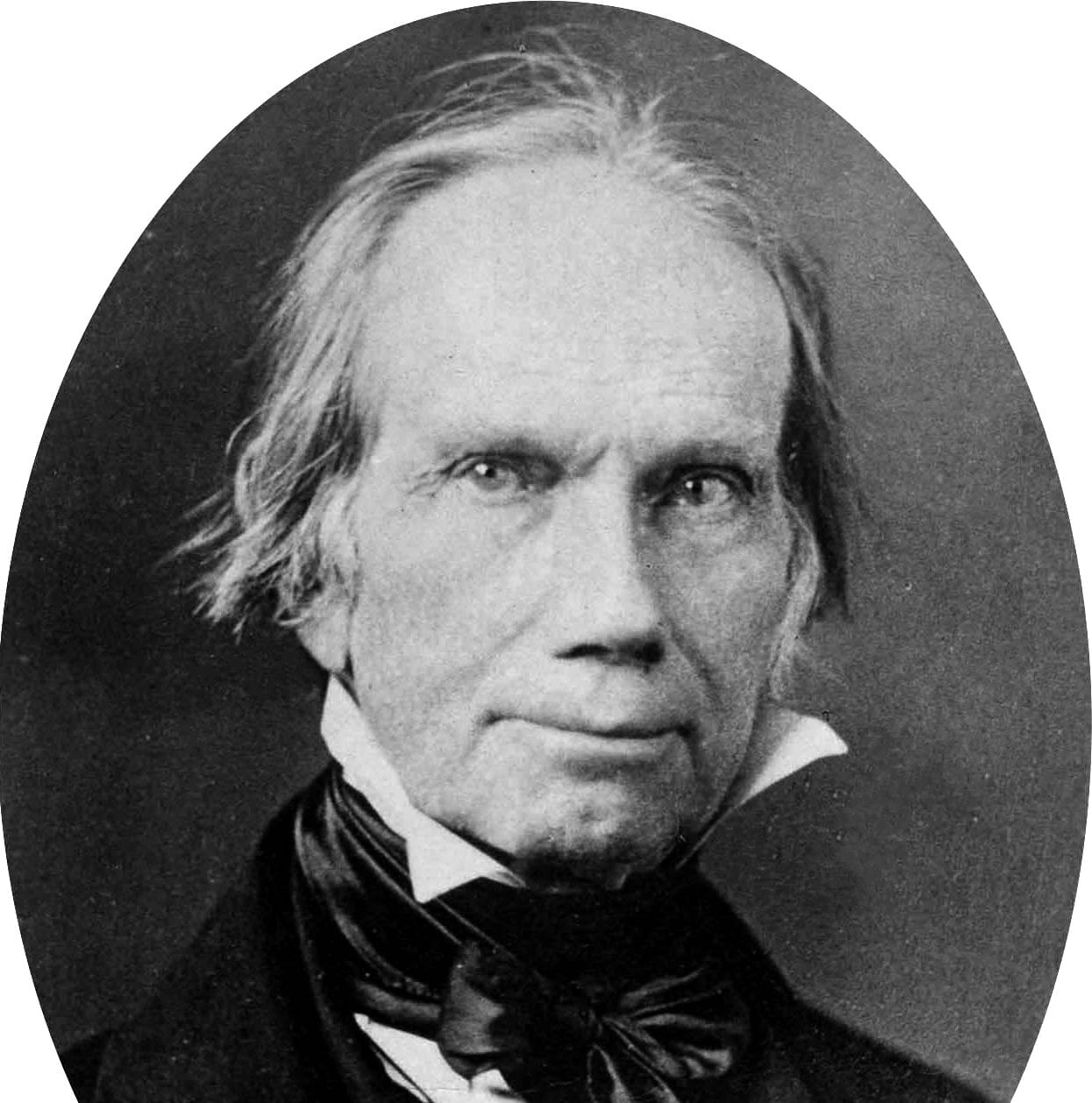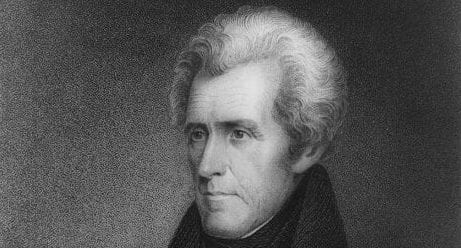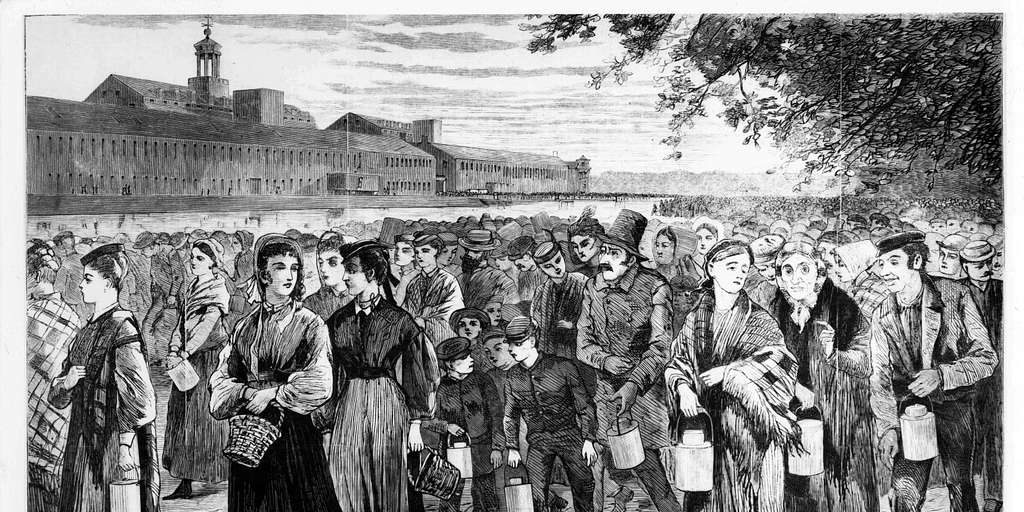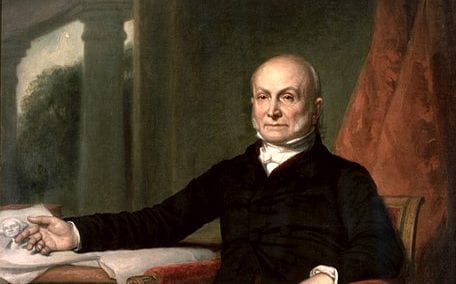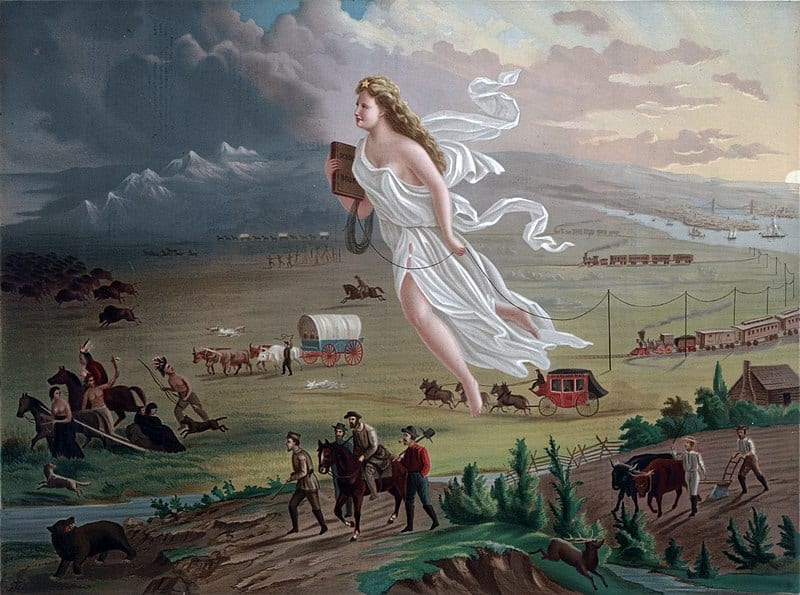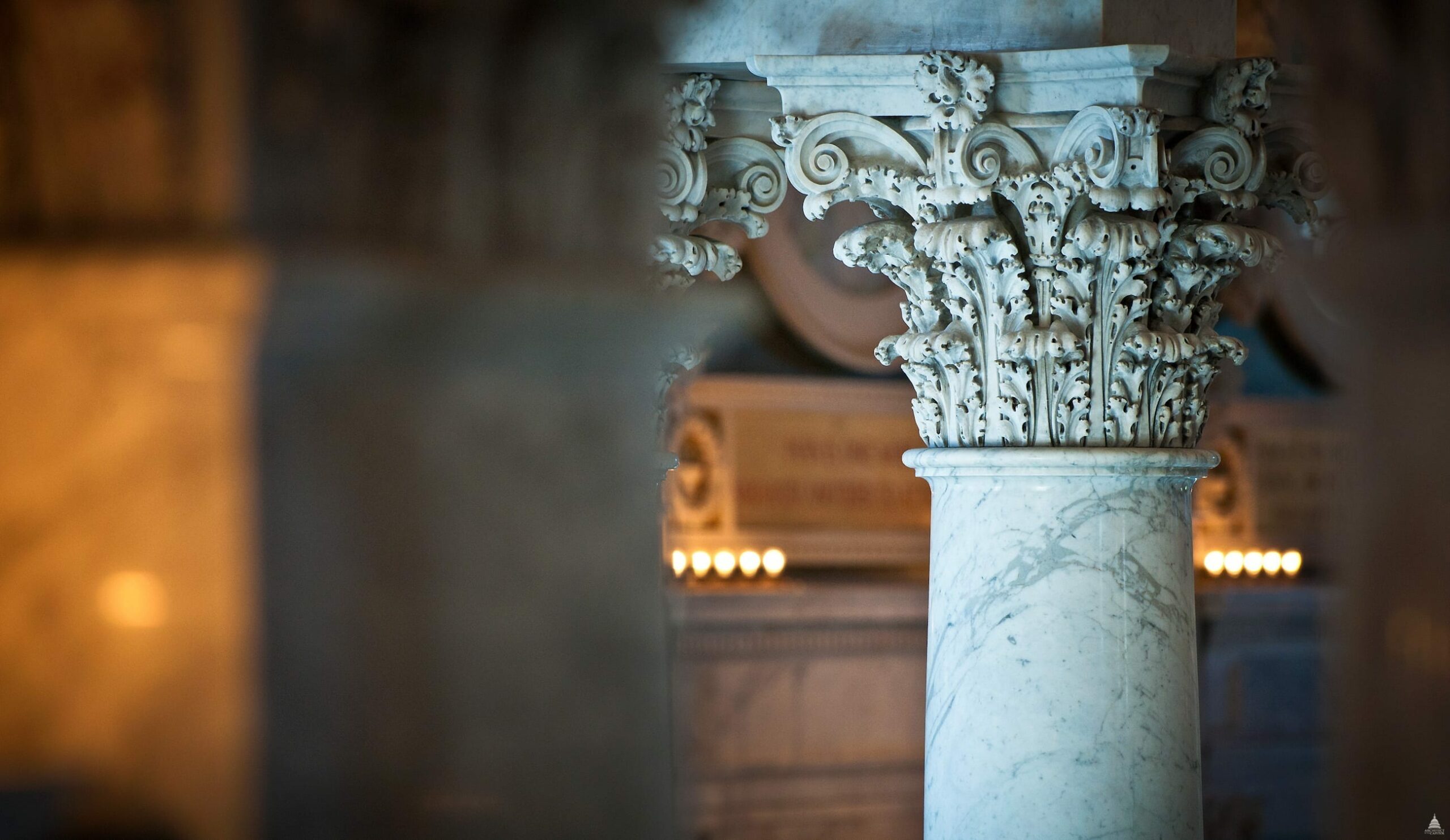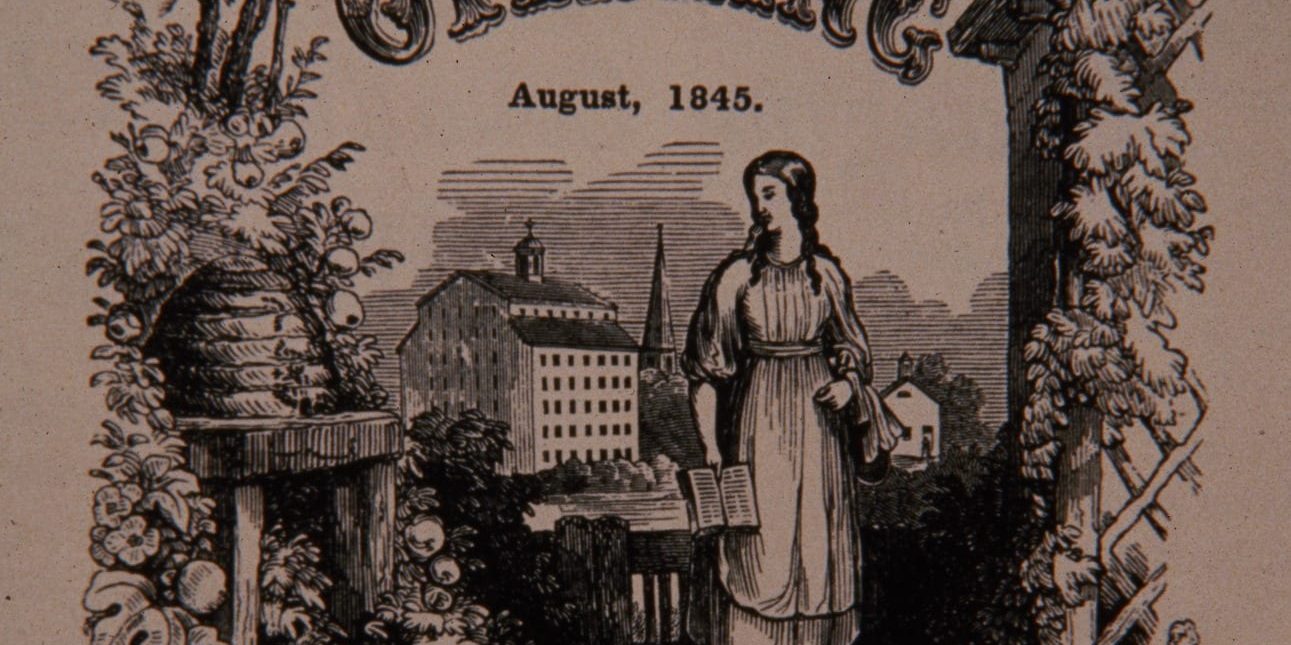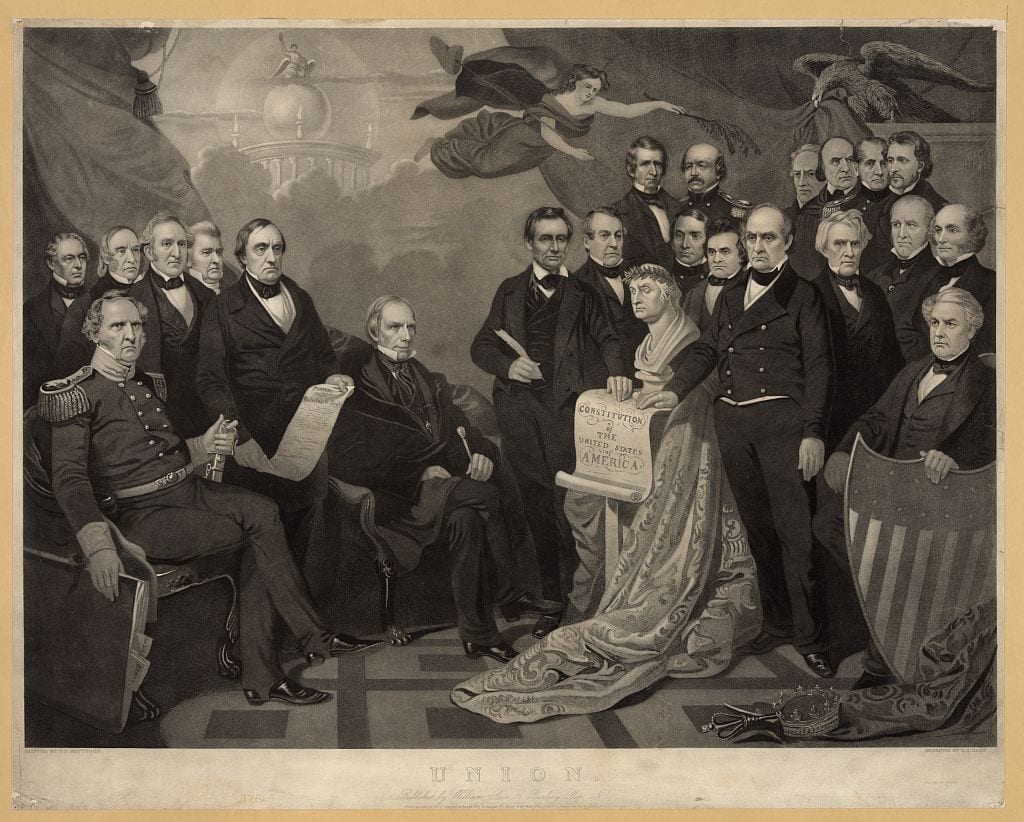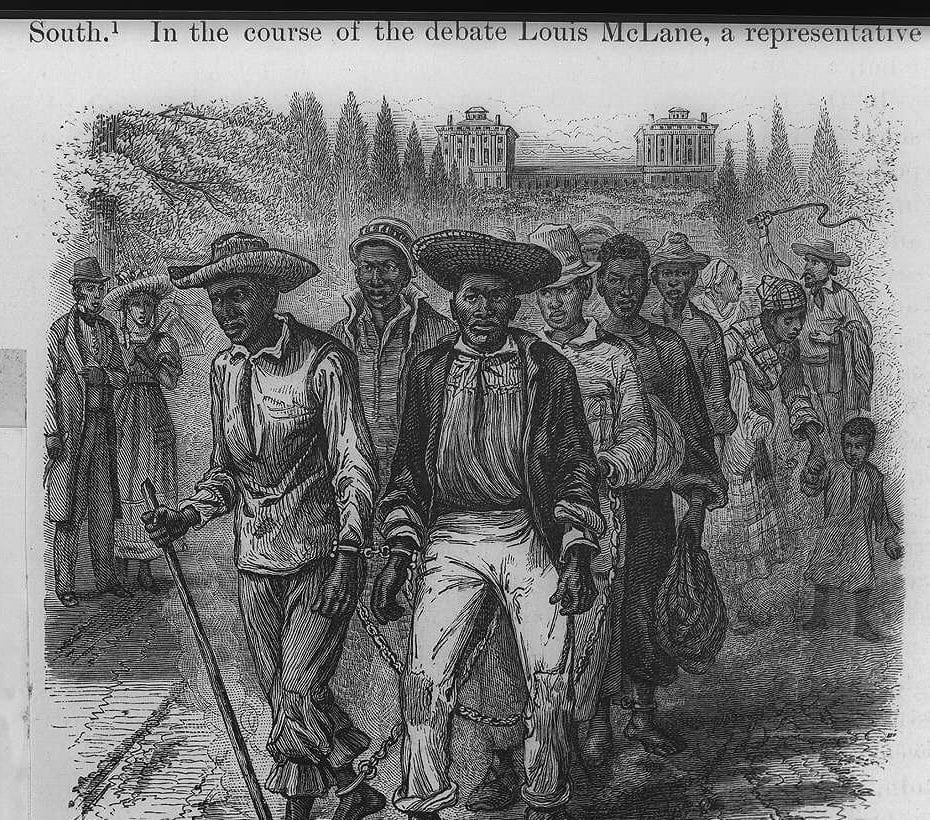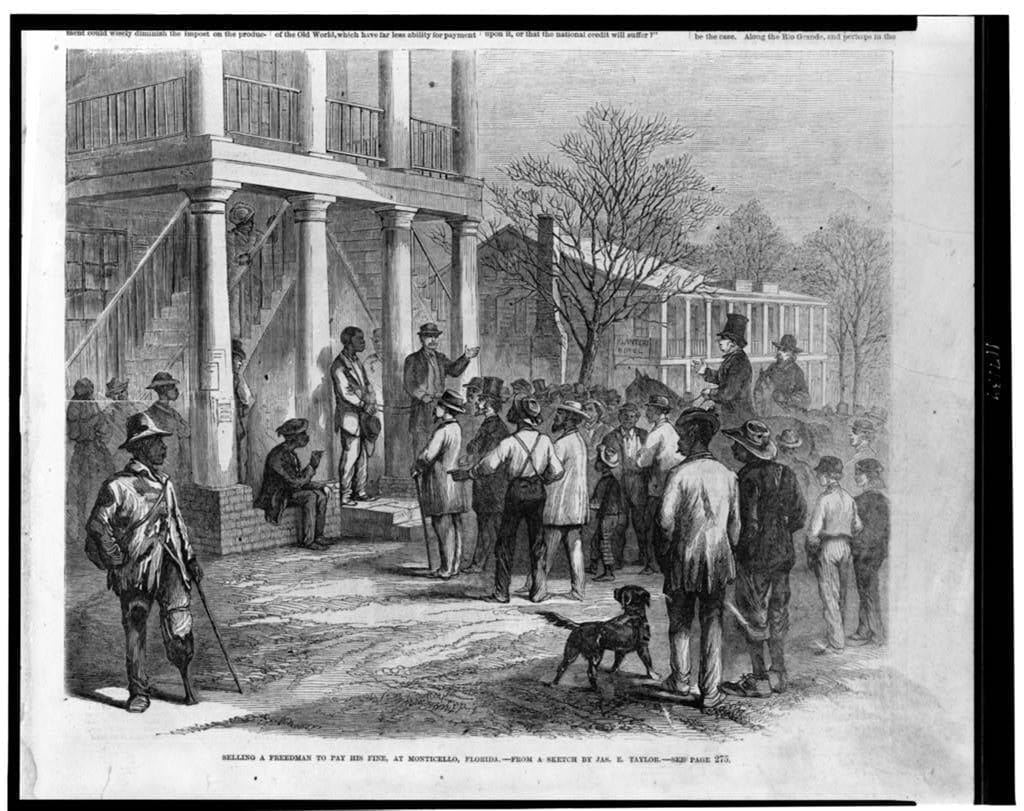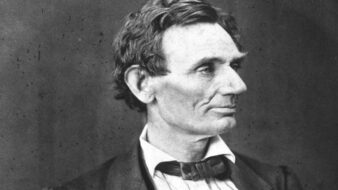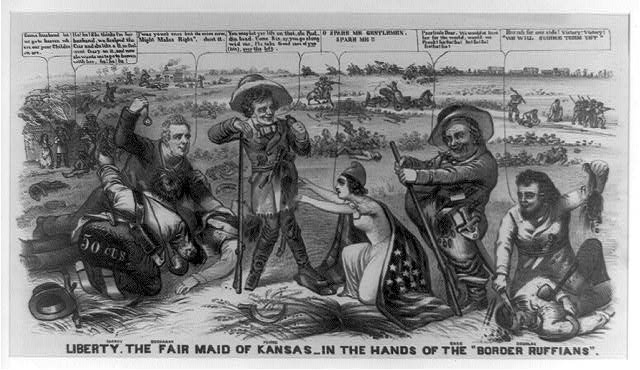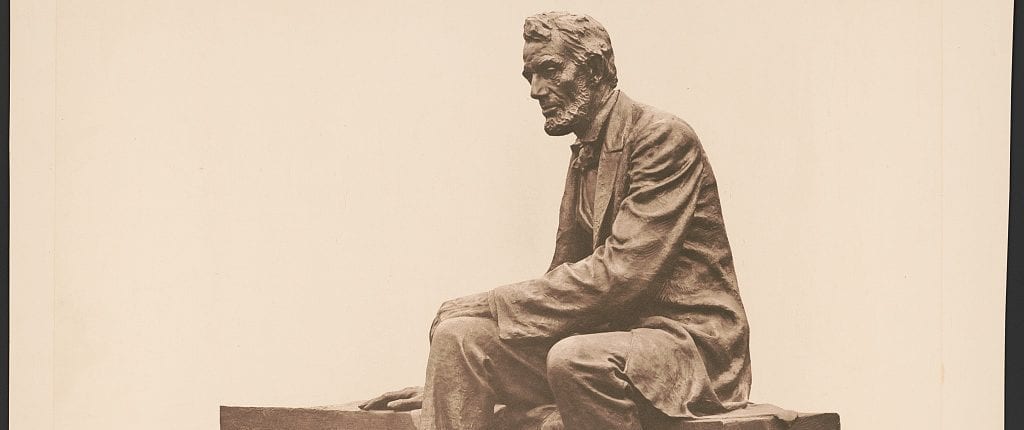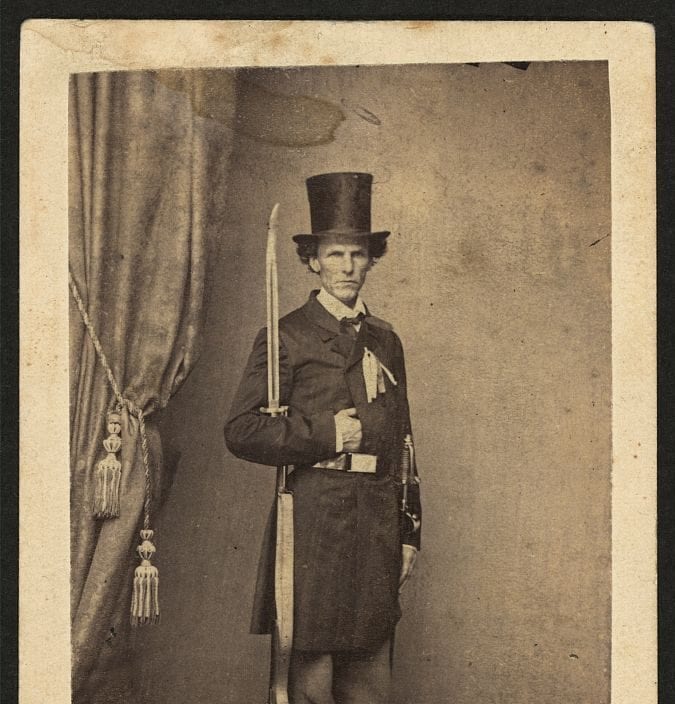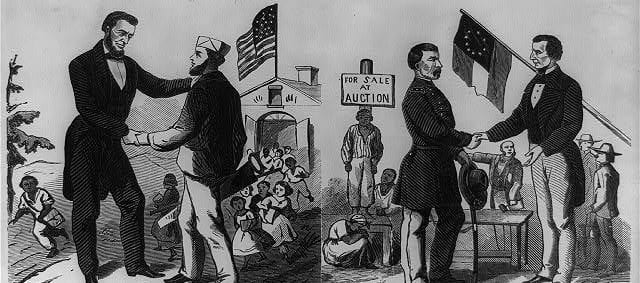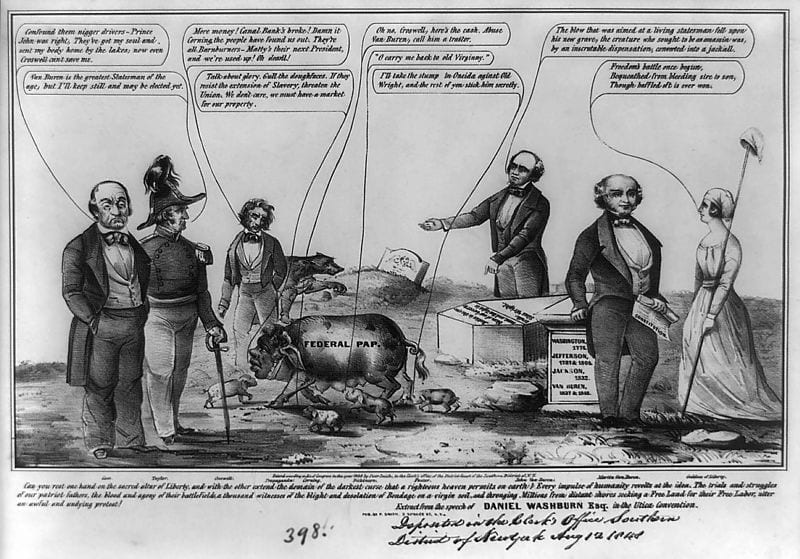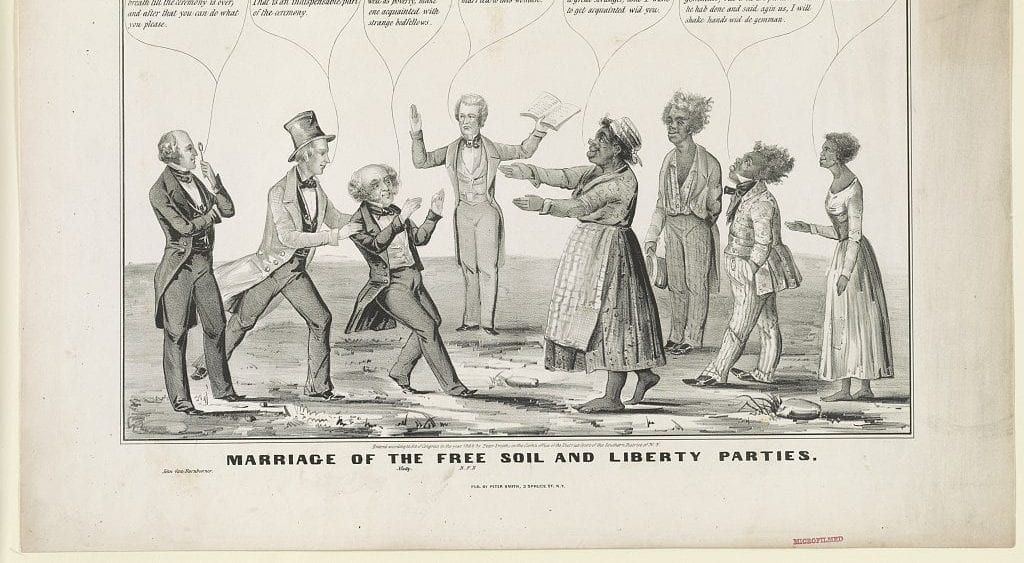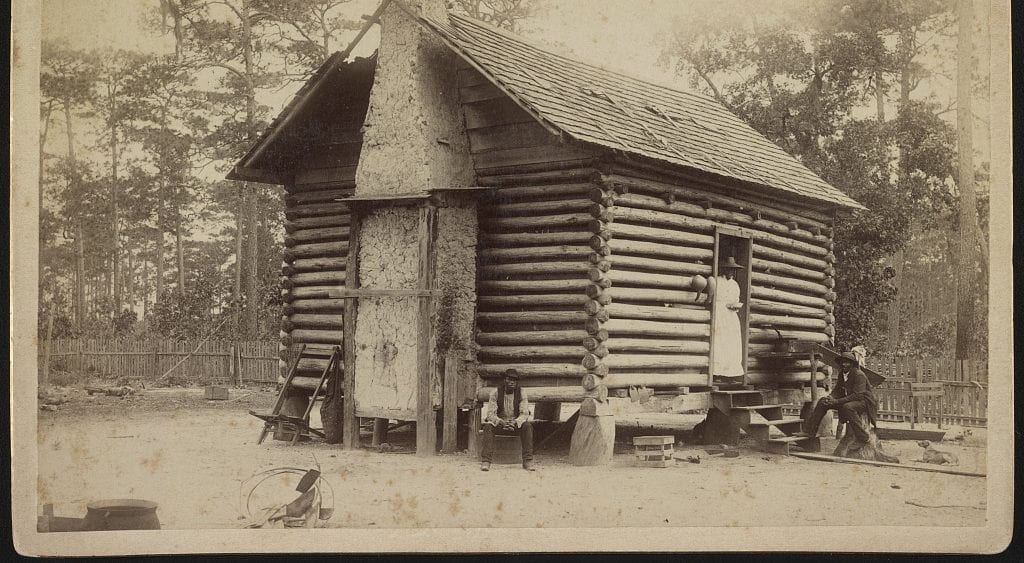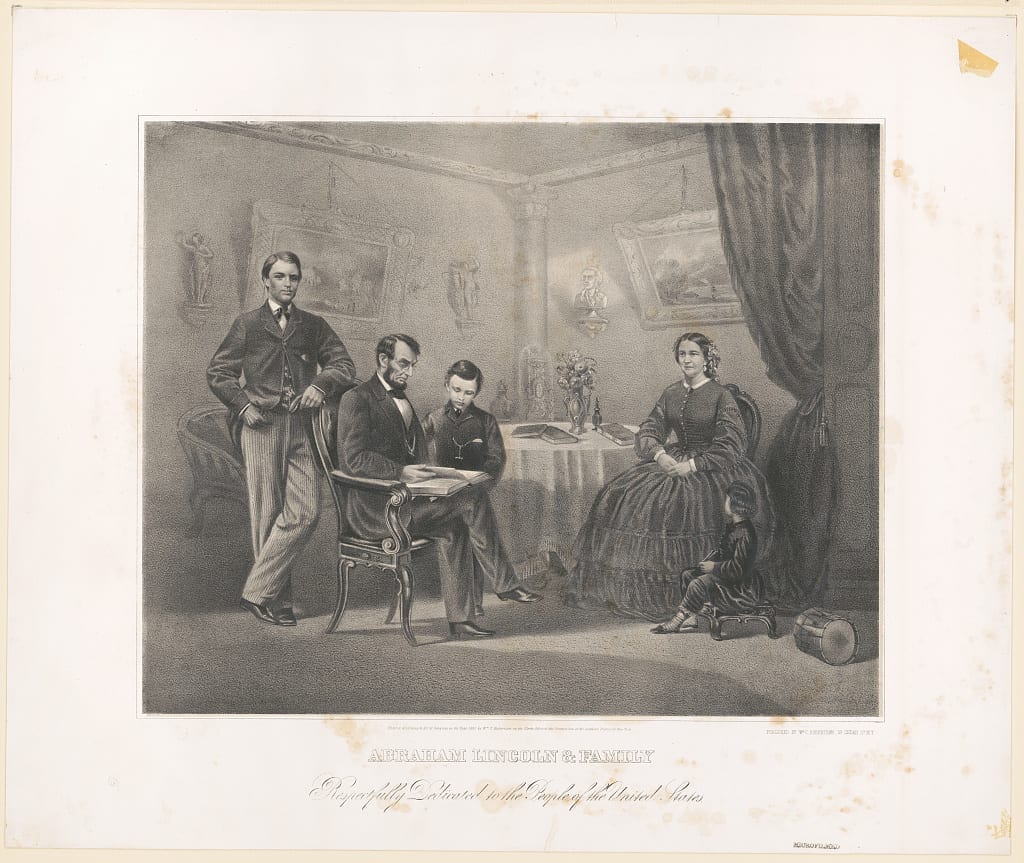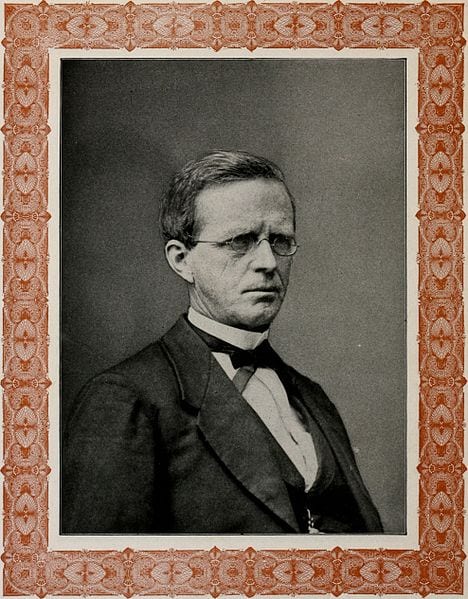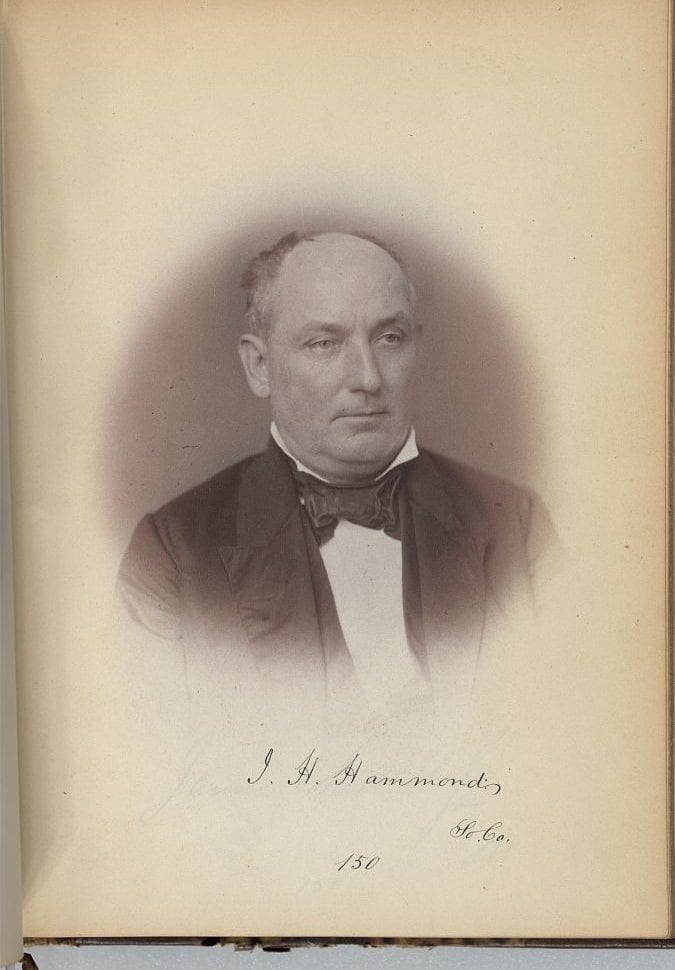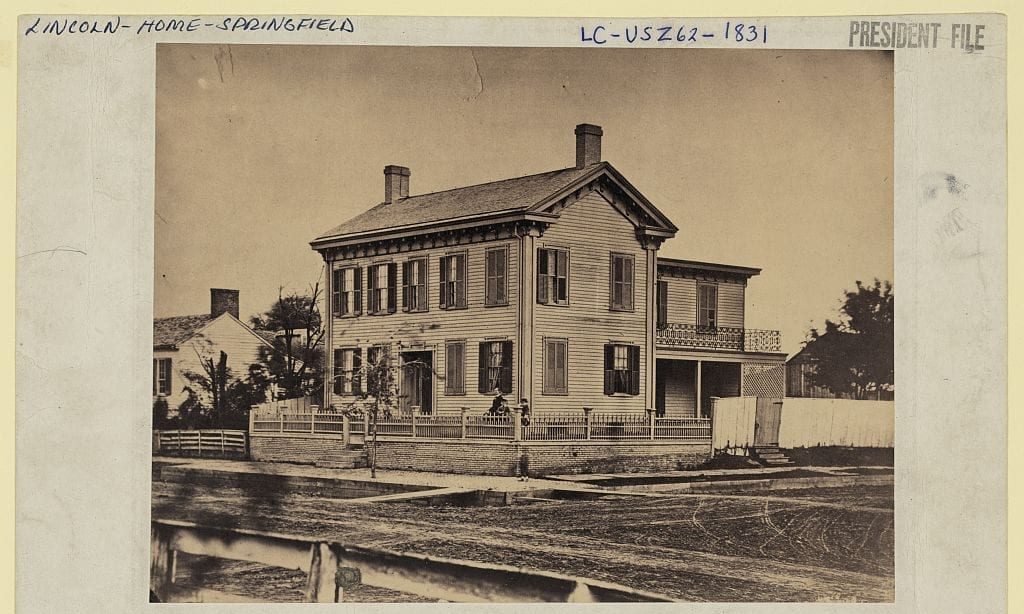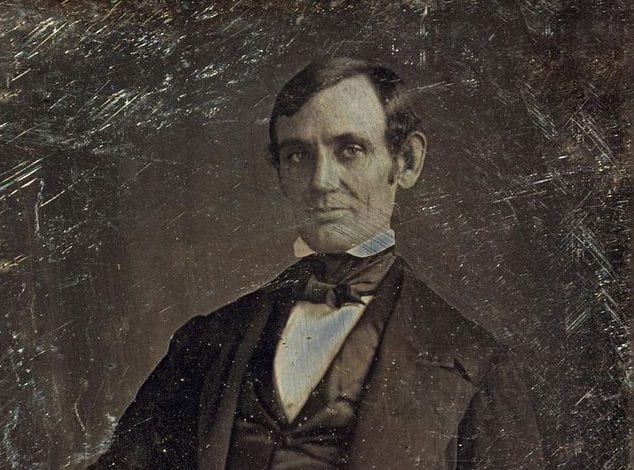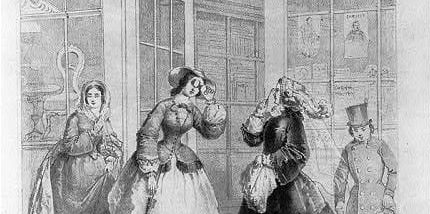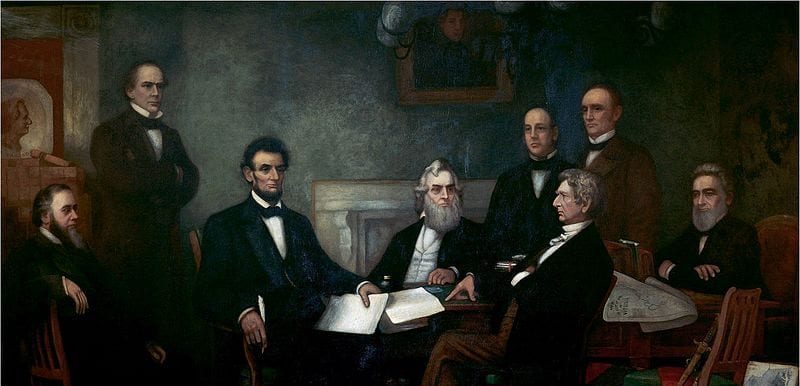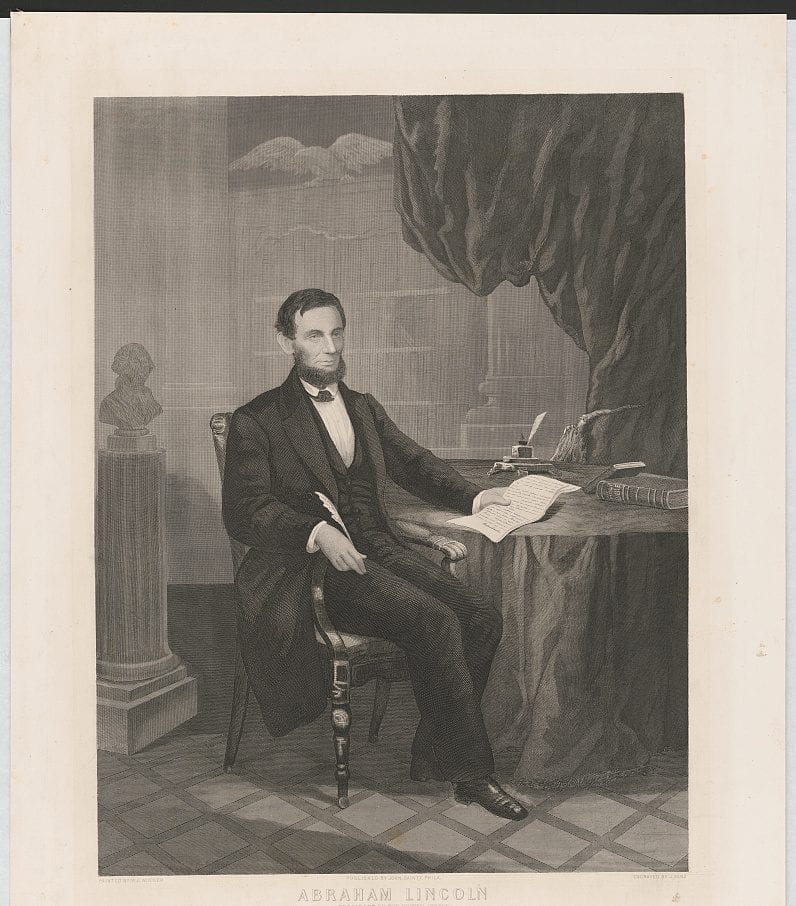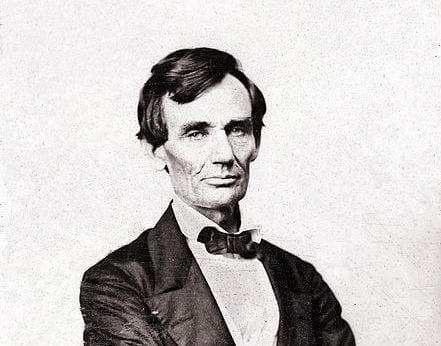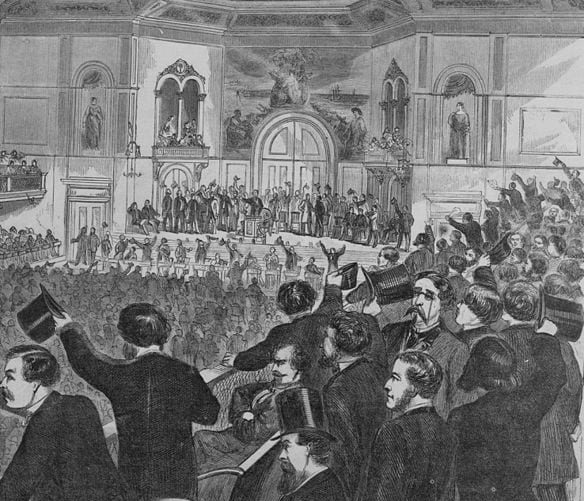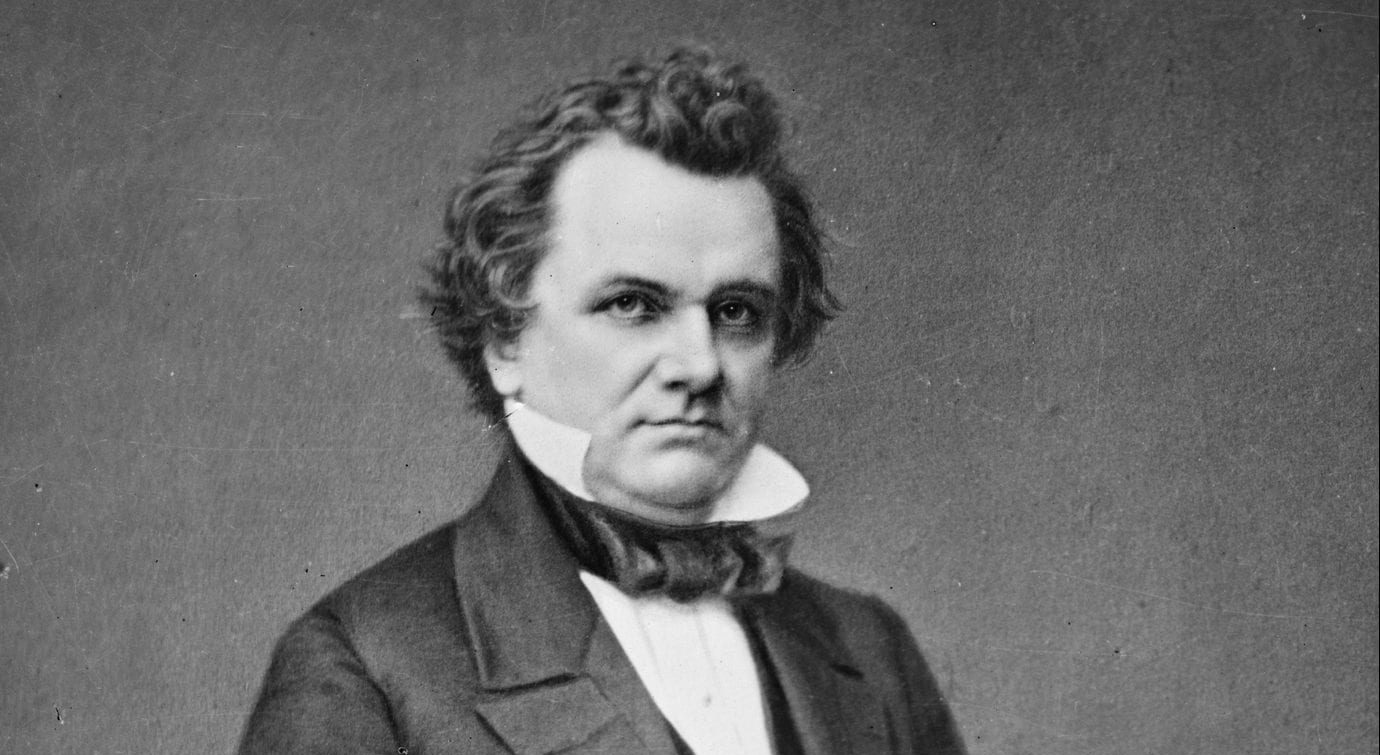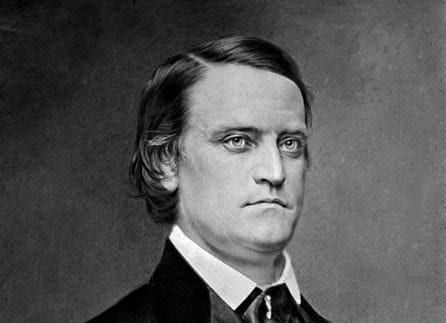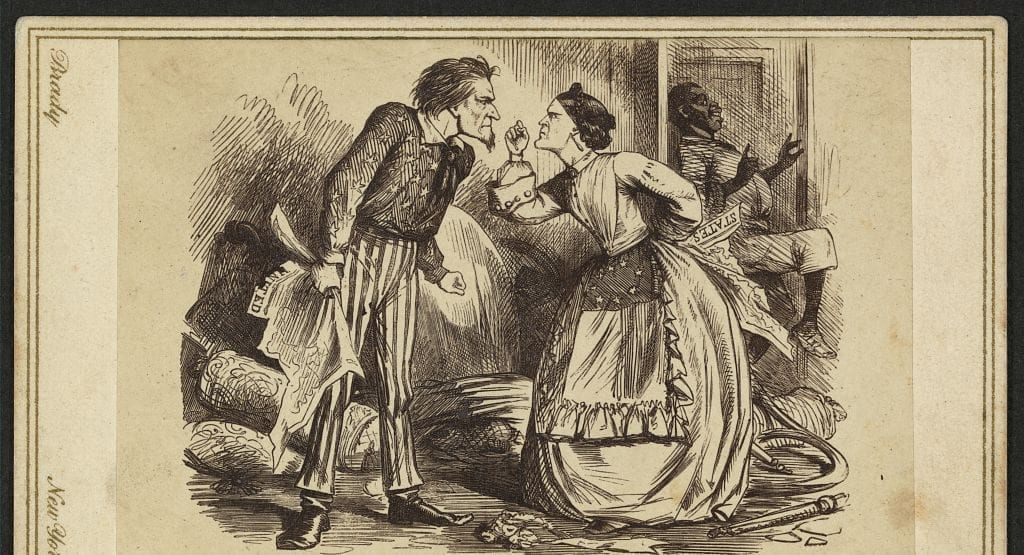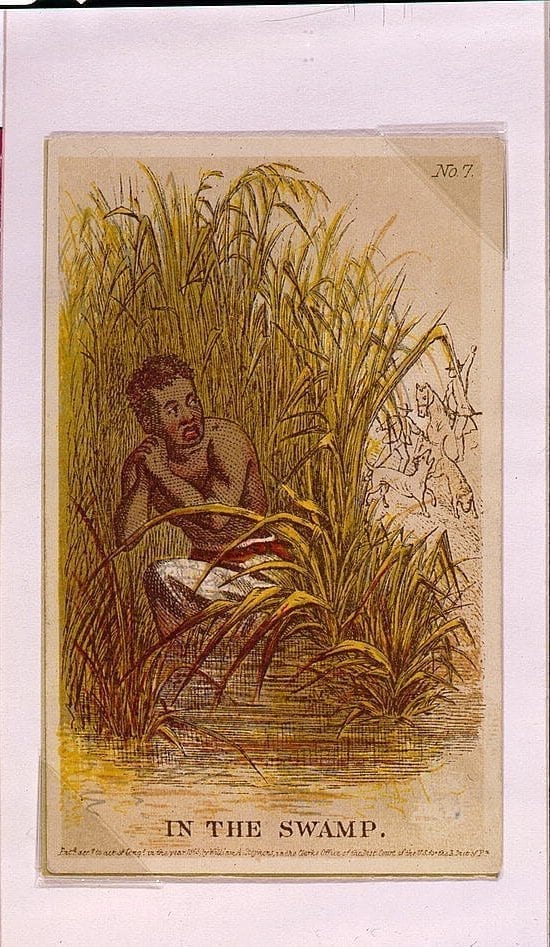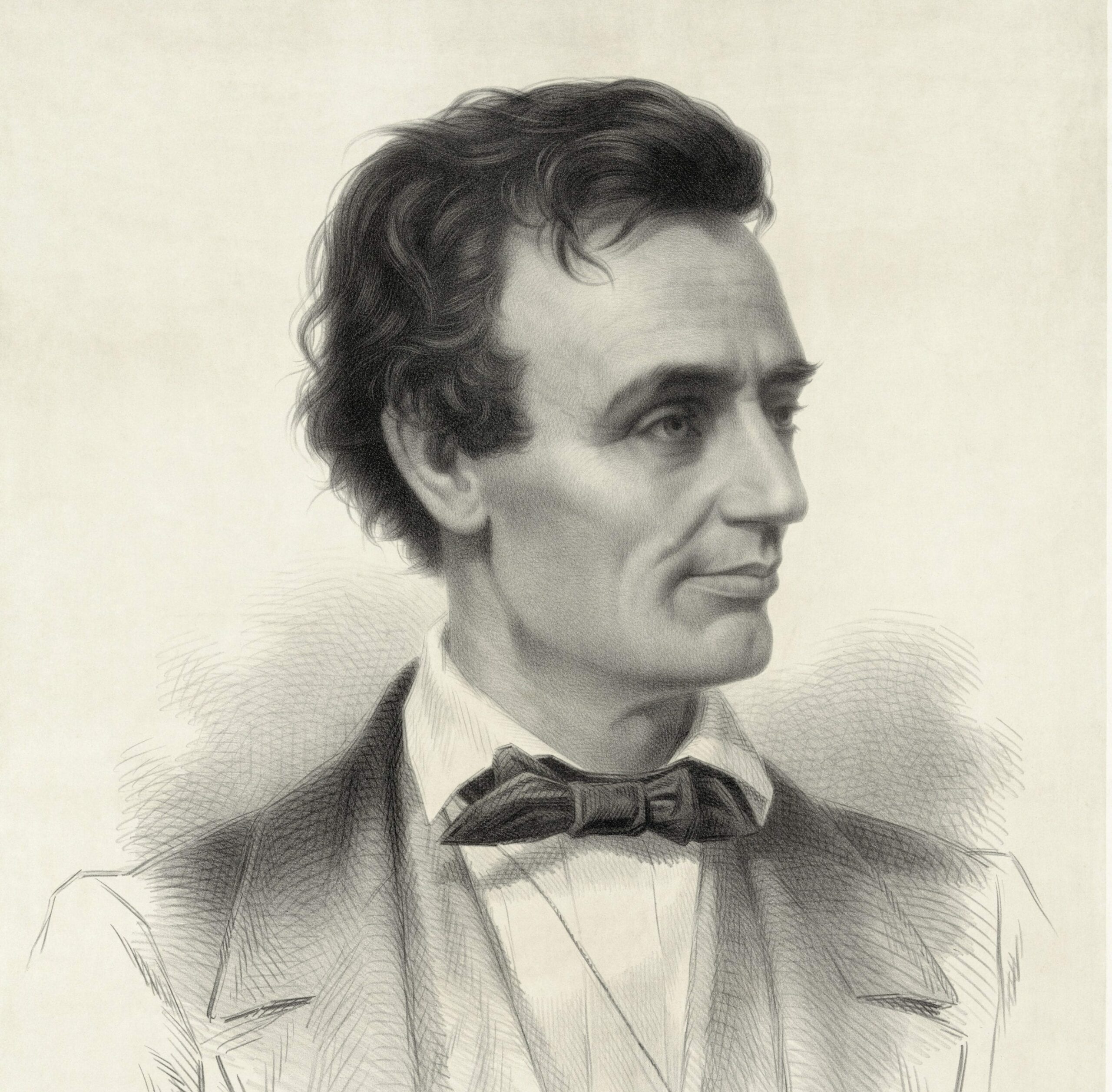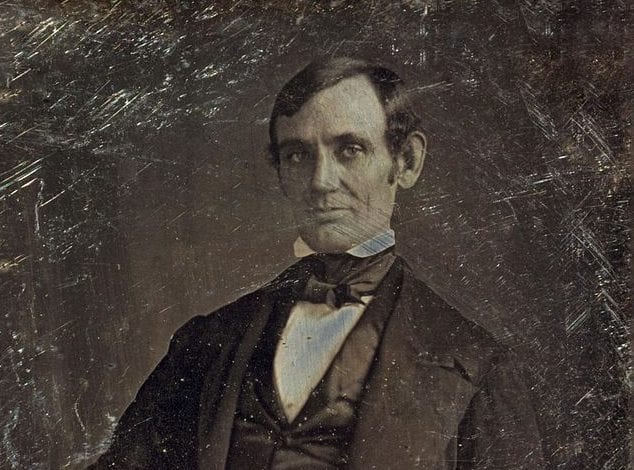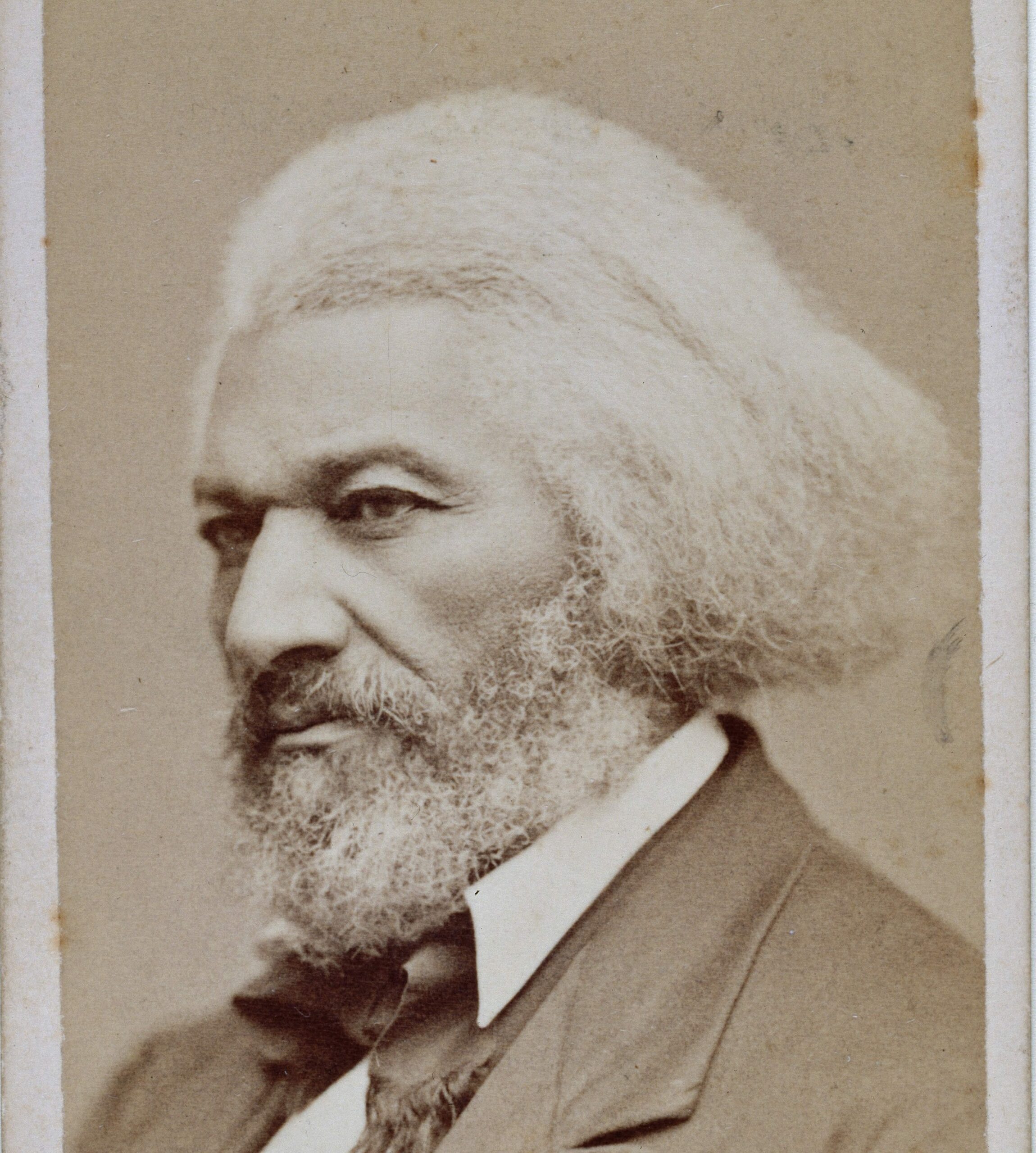

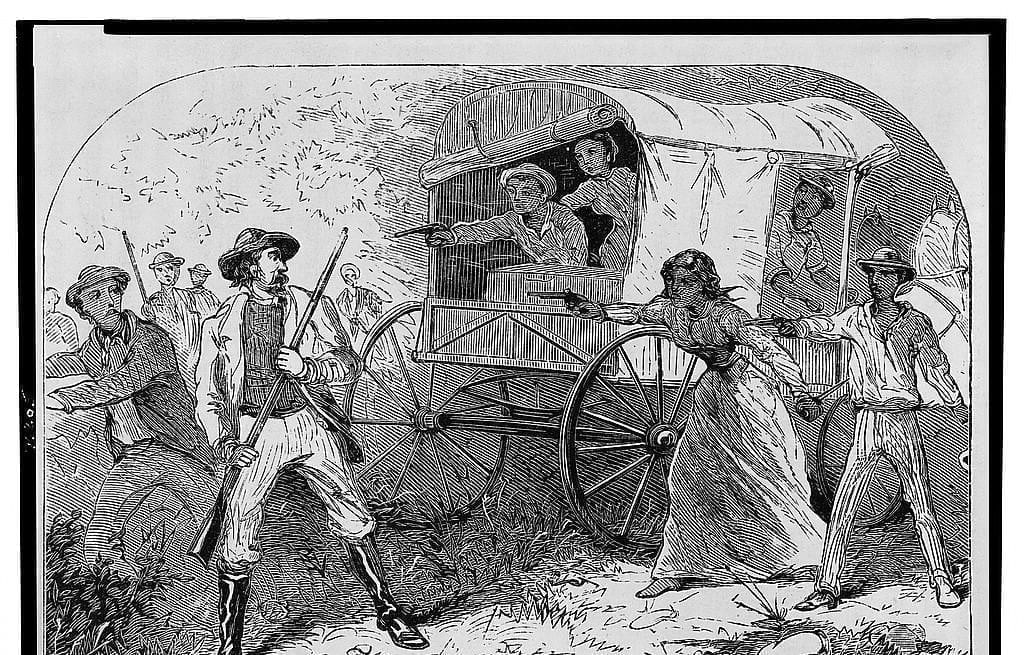
No related resources
Introduction
Before becoming Abraham Lincoln’s Secretary of State, and one of his most trusted advisors, William Henry Seward (1801–1872) served as governor of New York, U.S. senator, and was the favorite to win the Republican nomination for president in 1860. During the 1858 midterm elections, Seward spoke to a crowd in Rochester, New York, delivering what was arguably the most impressive, yet politically disastrous, speech of his career. Seward claimed that an “irrepressible conflict” was brewing over slavery and that the United States, as a result, must sooner or later become all slave or all free. The Democratic Party was the party of the slave power, Seward argued, its survival dependent on the support of the slave interest. The Republican Party had to replace it. But Seward’s fiery rhetoric and uncompromising attitude earned him the reputation throughout the South, and even in parts of the North, as a war-monger. The speech weakened his appeal among Republicans and severely damaged his chances of securing the 1860 nomination.
Seward’s speech is also notable for its description and defense of the system of free labor, which he contrasts to the system of slavery. Seward’s account of free labor should be compared with Senator James Henry Hammond’s defense of the slave system (“Mud Sill” Speech (1858)) and Abraham Lincoln’s defense of free labor (Address before the Wisconsin State Agricultural Society (1859)). It was the far-reaching political, moral, and economic effects of the two different labor systems that made the Civil War an “irrepressible conflict.”
Source: The Irrepressible Conflict: A Speech Delivered at Rochester, Monday, Oct. 25, 1858 (New York: New York Tribune, 1858), https://babel.hathitrust.org/cgi/pt?id=coo.31924032259578;view=1up;seq=1.
The unmistakable outbreaks of zeal which occur all around me show that you are earnest men—and such a man am I. Let us, therefore, at least for a time, pass all secondary and collateral questions, whether of a personal or of a general nature, and consider the main subject of the present canvass. The Democratic Party, or, to speak more accurately, the party which wears that attractive name—is in possession of the federal government. The Republicans propose to dislodge that party, and dismiss it from its high trust.
The main subject, then, is whether the Democratic Party deserves to retain the confidence of the American people. In attempting to prove it unworthy, I think that I am not actuated by prejudices against that party, or by prepossessions in favor of its adversary; for I have learned, by some experience, that virtue and patriotism, vice and selfishness, are found in all parties, and that they differ less in their motives than in the policies they pursue.
Our country is a theatre, which exhibits, in full operation, two radically different political systems; the one resting on the basis of servile or slave labor, the other on voluntary labor of freemen.
The laborers who are enslaved are all Negroes, or persons more or less purely of African derivation. But this is only accidental. The principle of the system is, that labor in every society, by whomsoever performed, is necessarily unintellectual, groveling and base; and that the laborer, equally for his own good and for the welfare of the state, ought to be enslaved. The white laboring man, whether native or foreigner, is not enslaved, only because he cannot, as yet, be reduced to bondage.
You need not be told now that the slave system is the older of the two, and that once it was universal.
The emancipation of our own ancestors, Caucasians and Europeans as they were, hardly dates beyond a period of five hundred years. The great melioration of human society which modern times exhibits is mainly due to the incomplete substitution of the system of voluntary labor for the one of servile labor, which has already taken place. This African slave system is one which, in its origin and in its growth, has been altogether foreign from the habits of the races which colonized these states, and established civilization here. It was introduced on this continent as an engine of conquest, and for the establishment of monarchical power, by the Portuguese and the Spaniards, and was rapidly extended by them all over South America, Central America, Louisiana, and Mexico. Its legitimate fruits are seen in the poverty, imbecility, and anarchy which now pervade all Portuguese and Spanish America. The free-labor system is of German extraction, and it was established in our country by emigrants from Sweden, Holland, Germany, Great Britain, and Ireland.
We justly ascribe to its influences the strength, wealth, greatness, intelligence, and freedom, which the whole American people now enjoy. One of the chief elements of the value of human life is freedom in the pursuit of happiness. The slave system is not only intolerable, unjust, and inhuman, toward the laborer, whom, only because he is a laborer, it loads down with chains and converts into merchandise, but is scarcely less severe upon the freeman, to whom, only because he is a laborer from necessity, it denies facilities for employment, and whom it expels from the community because it cannot enslave and convert into merchandise also. It is necessarily improvident and ruinous, because, as a general truth, communities prosper and flourish, or droop and decline, in just the degree that they practice or neglect to practice the primary duties of justice and humanity. The free-labor system conforms to the divine law of equality, which is written in the hearts and consciences of man, and therefore is always and everywhere beneficent.
The slave system is one of constant danger, distrust, suspicion, and watchfulness. It debases those whose toil alone can produce wealth and resources for defense, to the lowest degree of which human nature is capable, to guard against mutiny and insurrection, and thus wastes energies which otherwise might be employed in national development and aggrandizement.
The free-labor system educates all alike, and by opening all the fields of industrial employment and all the departments of authority, to the unchecked and equal rivalry of all classes of men, at once secures universal contentment, and brings into the highest possible activity all the physical, moral, and social energies of the whole state. In states where the slave system prevails, the masters, directly or indirectly, secure all political power, and constitute a ruling aristocracy. In states where the free-labor system prevails, universal suffrage necessarily obtains, and the state inevitably becomes, sooner or later, a republic or democracy. . . .
. . . The two systems are at once perceived to be incongruous. But they are more than incongruous—they are incompatible. They never have permanently existed together in one country, and they never can. It would be easy to demonstrate this impossibility, from the irreconcilable contrast between their great principles and characteristics. But the experience of mankind has conclusively established it. Slavery, as I have intimated, existed in every state in Europe. Free labor has supplanted it everywhere except in Russia and Turkey. State necessities developed in modern times are now obliging even those two nations to encourage and employ free labor; and already, despotic as they are, we find them engaged in abolishing slavery. In the United States, slavery came into collision with free labor at the close of the last century, and fell before it in New England, New York, New Jersey, and Pennsylvania, but triumphed over it effectually, and excluded it for a period yet undetermined, from Virginia, the Carolinas, and Georgia. Indeed, so incompatible are the two systems, that every new state which is organized within our ever-extending domain makes its first political act a choice of the one and the exclusion of the other, even at the cost of civil war, if necessary. The slave states, without law, at the last national election, successfully forbade, within their own limits, even the casting of votes for a candidate for president of the United States supposed to be favorable to the establishment of the free-labor system in new states.
Hitherto, the two systems have existed in different states, but side by side within the American Union. This has happened because the Union is a confederation of states. But in another aspect the United States constitute only one nation. Increase of population, which is filling the states out to their very borders, together with a new and extended network of railroads and other avenues, and an internal commerce which daily becomes more intimate, is rapidly bringing the states into a higher and more perfect social unity or consolidation. Thus, these antagonistic systems are continually coming into closer contact, and collision results.
Shall I tell you what this collision means? They who think that it is accidental, unnecessary, the work of interested or fanatical agitators, and therefor ephemeral, mistake the case altogether. It is an irrepressible conflict between opposing and enduring forces, and it means that the United States must and will, sooner or later, become either entirely a slaveholding nation, or entirely a free-labor nation. Either the cotton and rice fields of South Carolina and the sugar plantations of Louisiana will ultimately be tilled by free labor, and Charleston and New Orleans become markets of legitimate merchandise alone, or else the rye fields and wheat fields of Massachusetts and New York must again be surrendered by their farmers to slave culture and to the production of slaves, and Boston and New York become once more markets for trade in the bodies and souls of men. It is the failure to apprehend this great truth that induces so many unsuccessful attempts at final compromises between the slave and free states, and it is the existence of this great fact that renders all such pretended compromises, when made, vain and ephemeral. Startling as this saying may appear to you, fellow-citizens, it is by no means an original or even a modern one. Our forefathers knew it to be true, and unanimously acted upon it when they framed the Constitution of the United States. They regarded the existence of the servile system in so many of the states with sorrow and shame, which they openly confessed, and they looked upon the collision between them, which was then just revealing itself, and which we are now accustomed to deplore, with favor and hope. They knew that one or the other system must exclusively prevail.
Unlike too many of those who in modem time invoke their authority, they had a choice between the two. They preferred the system of free labor, and they determined to organize the government, and so direct its activity, that that system should surely and certainly prevail. For this purpose, and no other, they based the whole structure of the government broadly on the principle that all men are created equal, and therefore free—little dreaming that, within the short period of one hundred years, their descendants would bear to be told by any orator, however popular, that the utterance of that principle was merely a rhetorical rhapsody; or by any judge, however venerated, that it was attended by mental reservation, which rendered it hypocritical and false. By the ordinance of 1787[1] they dedicated all of the national domain not yet polluted by slavery to free labor immediately, thenceforth and forever; while by the new Constitution and laws they invited foreign free labor from all lands under the sun, and interdicted the importation of African slave labor, at all times, in all places, and under all circumstances whatsoever. It is true that they necessarily and wisely modified this policy of freedom by leaving it to the several states, affected as they were by different circumstances, to abolish slavery in their own way and at their own pleasure, instead of confiding that duty to Congress; and that they secured to the slave states, while yet retaining the system of slavery, a three-fifths representation of slaves in the federal government, until they should find themselves able to relinquish it with safety. But the very nature of these modifications fortifies my position, that the fathers knew that the two systems could not endure within the Union, and expected within a short period slavery would disappear forever. Moreover, in order that these modifications might not altogether defeat their grand design of a republic maintaining universal equality, they provided that two thirds of the states might amend the Constitution. . . .
. . . How, then, and in what way, shall the necessary resistance [to slavery] be made? There is only one way. The Democratic Party must be permanently dislodged from the government. The reason is, that the Democratic Party is inextricably committed to the designs of the slaveholders, which I have described.
Such is the Democratic Party. It has no policy, state or federal, for finance, or trade, or manufacture, or commerce, or education, or internal improvements, or for the protection or even the security of civil or religious liberty. It is positive and uncompromising in the interest of slavery—negative, compromising, and vacillating, in regard to everything else. It boasts its love of equality, and wastes its strength, and even its life, in fortifying the only aristocracy known in the land. It professes fraternity, and, so often as slavery requires, allies itself with proscription. It magnifies itself for conquests in foreign lands, but it sends the national eagle forth always with chains, and not the olive branch, in his fangs.
This dark record shows you, fellow-citizens, what I was unwilling to announce at an earlier stage of this argument, that of the whole nefarious schedule of slaveholding designs which I have submitted to you, the Democratic Party has left only one yet to be consummated-the abrogation of the law which forbids the African slave trade.
I know—few, I think, know better than I—the resources and energies of the Democratic Party, which is identical with the slave power. I do ample justice to its traditional popularity. I know further—few, I think, know better than I—the difficulties and disadvantages of organizing a new political force, like the Republican Party, and the obstacles it must encounter in laboring without prestige and without patronage. But, understanding all this, I know that the Democratic Party must go down, and that the Republican Party must rise into its place. The Democratic Party derived its strength, originally, from its adoption of the principles of equal and exact justice to all men. So long as it practiced this principle faithfully it was invulnerable. It became vulnerable when it renounced the principle, and since that time it has maintained itself, not by virtue of its own strength, or even of its traditional merits, but because there as yet had appeared in the political field no other party that had the conscience and the courage to take up, and avow, and practice the life-inspiring principle which the Democratic Party had surrendered. At last, the Republican Party has appeared. It avows, now, as the Republican Party of 1800 did, in one word, its faith and its works, “Equal and exact justice to all men.” Even when it first entered the field, only half organized, it struck a blow which only just failed to secure complete and triumphant victory. In this, its second campaign, it has already won advantages which render that triumph now both easy and certain.
The secret of its assured success lies in that very characteristic which, in the mouth of scoffers, constitutes its great and lasting imbecility and reproach. It lies in the fact that it is a party of one idea; but that is a noble one—an idea that fills and expands all generous souls; the idea of equality—the equality of all men before human tribunals and human laws, as they all are equal before the divine tribunal and divine laws.
I know, and you know, that a revolution has begun. I know, and all the world knows, that revolutions never go backward. Twenty senators and a hundred representatives proclaim boldly in Congress today sentiments and opinions and principles of freedom which hardly so many men, even in this free state, dared to utter in their own homes twenty years ago. While the government of the United States, under the conduct of the Democratic Party, has been all that time surrendering one plain and castle after another to slavery, the people of the United States have been no less steadily and perseveringly gathering together the forces with which to recover back again all the fields and all the castles which have been lost, and to confound and overthrow, by one decisive blow, the betrayers of the Constitution and freedom forever.
- 1. The Northwest Ordinance
Lincoln-Douglas Debates
October, 1858
Conversation-based seminars for collegial PD, one-day and multi-day seminars, graduate credit seminars (MA degree), online and in-person.














